Episodes
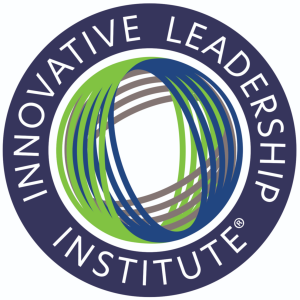
Monday Mar 20, 2023
Monday Mar 20, 2023
Guest: Dr. Bob Boggs
As part of the thought leader series, Dr. Boggs shares information from his book Honored Feathers of Wisdom: Attributes For Personal and Organizational Growth. Dr. Boggs draws from the Native American heritage to identify these traits. This book is a great reminder of the nuanced traits of leaders. Bob focuses on how being a wise person results in better leadership. Bob and Maureen discuss the following topics among many others: 1. Why do you draw from Native American Chiefs as a foundation for your book? 2. What is the pathway to wisdom? 3. Why do we care about wisdom for leaders – isn’t success measured just by results? 4. Leaders need to be intellectually “smart” but why do they need to balance their intellect with emotion? 5. You talked about Chiefs it looks like they had influence but not command and control power – what was their role? 6. How can we pull from what Chiefs did long ago and apply it to today?
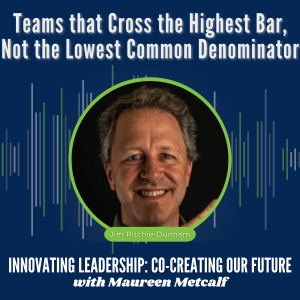
Monday Mar 20, 2023
Monday Mar 20, 2023
Guest: Jim Ritchie Dunham
For people working in groups, we have often seen the group perform to the level of the lowest common denominator. This conversation provides a high-level framework for leaders to refine their approach to increasing team effectiveness by leveraging the concept of “room to roam.” Room to roam looks at five key variables we believe are the foundation when looking at leadership successful performance in groups. The five perspectives are: 1. Leadership maturity 2. State development 3. Years of experience 4. Mindfulness 5. Ability to identify and “co-host” or build on the perspectives in the room This conversation explores the five perspectives in greater detail as well as the idea of “co-hosting” as a tool to change the way the group works. Another critical element of group functioning is the agreements they have with one another on how they operate.
Maximizing Team Interactions: Moving Beyond the Lowest Common Denominator’s Reign
This blog is drawn from a paper by Jim Ritchie-Dunham & Maureen Metcalf, Co-hosting: Creating Optimal Experience for Team Interactions, Integral Leadership Review, November 2016. Jim and Maureen also recorded a podcast.
Christopher, the CEO, walked into a planning session to get his full team on the same page for how to move key initiatives forward for the upcoming year. His leaders were all in alignment on the core purpose of the organization and how to accomplish it. During the discussion, everyone gave unbiased input to move the organization forward, irrespective of personal interest. Christopher was highly skilled at understanding the point of view of all participants and synthesizing the various points of view of his trusted leaders to create solutions everyone could support.
Does this scenario describe your normal business meetings? How is it different?
We want to explore the idea that groups can leverage the skills of individuals across five key perspectives and create an environment in which each participant operates at his greatest level of contribution. We call this the alchemy of co-hosting, whereby the co-host, in conjunction with the participants, invokes a very different mindset and process for the team to function.
The Challenge
“Less than one-third of U.S. employees have been engaged in their jobs and workplaces [since 2000]. According to Gallup Daily tracking, 32% of employees in the U.S. are engaged — meaning they are involved in, enthusiastic about, and committed to their work and workplace. Worldwide, only 13% of employees working for an organization are engaged.” – Gallup
Much of our work is done within teams of highly effective and highly compensated people. We have found that these teams often function at the level of the least common denominator. Many people, especially leaders, move from meeting to meeting all day. They often do this with little awareness of their specific role in the meeting and the value they bring. This is the culture of many organizations. When asking a cohort of vibrancy community members what they experienced in these teams, they suggested that while the participants were generally strong employees with good skills, they were often disengaged, and some actively disrupted the work or found ways to interfere with the meeting goals. In some cases, the participants did this as a passive-aggressive response; in some worse cases, they did it just for personal entertainment. So, what is the antidote to this high level of disengagement considering five key factors other than the highest rank present? How do we capture the highest input level from each person to create a higher level “field” of operation than any individual would have access to by working alone?
The Approach
We look at five different perspectives or measures of intelligence and then explore how the art of co-hosting can leverage all five intelligences of the participants to create an environment that calls forth the greatest possible capacity in the group.
The five perspectives are:
Leadership maturity – describes how adults mature throughout their lifespan, attending to ever-increasing levels of complexity in their thinking, emotions, and behaviors
State development – describes where people focus their attention, ranging from what is immediately in front of them to what is abstract and spiritual.
Years of experience
Skill to identify the perspectives in the room
Co-hosting skill – the ability to identify the perspectives in the room and create an environment and approach that leverages the maturity, state, and skills of the participants
It is interesting to note that each perspective is important for an organization to create holistic solutions to its many complex challenges. For that reason, it is important to recognize each of these perspectives and be able to identify, recruit, and create environments that genuinely leverage each of their gifts.
Integrating the five perspectives individually allows an effective co-host to create the “container” or space to leverage each to the participants’ greatest potential rather than the traditional lowest common denominator.
Summary
During this era of increased complexity and accelerated need for change, we must identify methods and processes to help us navigate our challenges. Optimally, these methods and processes would create the greatest impact for all involved—creating an optimal individual experience and a holistic solution for the organizations or groups involved.
We believe the solution integrates a solid process that integrates five key perspectives and a presence of being within the co-host to create the desired outcome. Both elements are critical.
We have an opportunity to enhance the experience and the impact we have in trying to solve problems. By building the capacity to co-host and using this process, we increase the probability of solving our most complex problems and enjoying the process. Knowing this is possible helps us regain hope that we as a society can resolve the mounting list of intractable problems we hear of daily on the news.
Authors
Jim Ritchie-Dunham is president of the Institute for Strategic Clarity, a global research nonprofit, president of Vibrancy Ins., LLC, a global consultancy and publisher, president of the private operating foundation the Academy for Self-Discovery Leadership, an adjunct faculty member in Harvard’s program in sustainability leadership, and Adjunct Professor of Business Economics in the ITAM Business School in Mexico City.
Jim authored Ecosynomics: The Science of Abundance (2014), co-authored Managing from Clarity: Identifying, Aligning and Leveraging Strategic Resources (2001), has written many articles on systemic strategy for academic and practitioner journals, and blogs regularly at jlrd.me.
As a student of human agreements, Jim Ritchie-Dunham brings over 25 years of research and insights gleaned from working with groups of all make-ups. Jim named Ecosynomics, the emerging social science of the agreements that guide human interactions. Ecosynomics provides a framework rooted in economics and the sciences of human agreements that begins with an initial assumption of abundance, not scarcity, and a wider view of the human being.
Maureen Metcalf, CEO and Founder of Innovative Leadership Institute is a renowned executive advisor, author, speaker, and executive advisor whose 30 years of business experience provides high-impact, practical solutions that support her clients’ leadership development and organizational transformations. Maureen is recognized as an innovative, principled thought leader who combines intellectual rigor and discipline with an ability to translate theory into practice. Her operational skills are coupled with a strategic ability to analyze, develop, and implement successful profitability, growth, and sustainability strategies.
Maureen has published several papers and articles and speaks regularly on innovative leadership, resilience, and organizational transformation. She is the author of the award-winning Innovative Leadership Workbook Series and the co-author of The Innovative Leadership Fieldbook, and she is the winner of an International Book Award for Best Business Reference Book. She is also a regular contributor to Forbes.com.
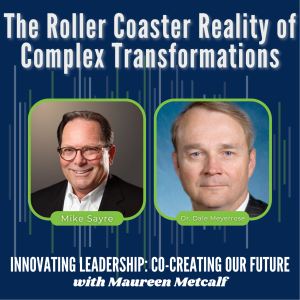
Monday Mar 20, 2023
Monday Mar 20, 2023
Guests: Mike Saye & Dr. Dale Meyerrose
Mike Sayre and Dr. Dale Meyerrose talk about their transformation success – it sounds as if they created a plan, executed on the plan and declared victory. In working with large complex change, this is rarely true. Things happen that derail the project such as acquisitions, divestitures, and market changes. The test of a successful leader is how he or she responds to the changes that happen and pivots to revise the strategy for success and implements these changes.
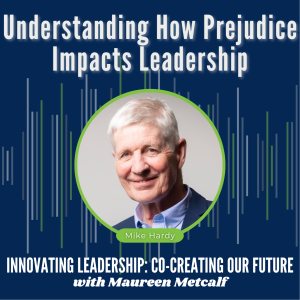
Wednesday Mar 15, 2023
Wednesday Mar 15, 2023
Guest: Mike Hardy
By helping leaders understand their own views and behaviors when facing diversity, we enhance our leadership capacity. When we eliminate segments of the population because they appear different, we remove valuable insights and perspectives. The 21st century is a relationship age. Mike discusses the forces of prejudice versus the forces of pluralism. If people are not able to be comfortable living and working among diverse people, then leaders need to spend their time policing and setting rules and guidelines to keep us safe. The alternative is a scenario were the group creates norms and it finds ways to move through situations based on our its agreements without the boss intervening. If we learn to be comfortable with the space difference needs, we create greater opportunity for everyone involved and diversity becomes a true differentiator in solving the greatest problems. When we limit diversity, we limit perspectives and we are at a disadvantage.
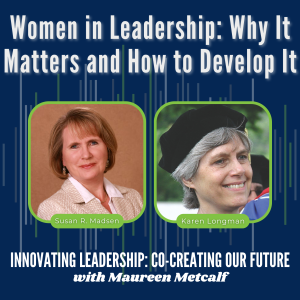
Wednesday Mar 15, 2023
Wednesday Mar 15, 2023
Guests: Susan R. Madsen & Karen Longman
Our two guests - both experts and advocates for women as leaders talk about the role women leaders play in organizations and how we develop girls and women to prepare them to take leadership roles. Why do we need more women leaders? How do they impact organizational success including financial performance, diversity of talent, and improved engagement and retention? They talk about: 1. the business case for why we need women in leadership roles, clarifying the benefits of women holding these roles. 2. specific tactics for girls and women to develop their leadership skills. 3. global female leadership role models 4. board roles impact women have

Wednesday Mar 15, 2023
Wednesday Mar 15, 2023
Guest: George Papandreou
Papandreou, former prime minister of Greece, talks about how he navigated major challenge as a leader. One of my key take-a-ways was the importance of building trust and demonstrating courage as foundational skills to leading in turbulent times. He talked about his personal experience as a refugee when his family was in exile to provide context for his views on the importance of inclusion and building alliances across borders. At the root, this interview is about how do we, as people, build common values and common rules to promote fair competition that enables us to work together across borders to solve the challenges we face as a global community. How do we emulate the metaphor of the Olympics rather than the gladiator pit? This interview offers a glimpse into his perspective.

Wednesday Mar 15, 2023
Wednesday Mar 15, 2023
Guest: Ron Heifetz
During the Interview, we discuss Ron's thoughts on leadership and his journey. Here is a preview: In times of change, people often try to hold onto the values of their culture that have had personal meaning and significance to them. When dominant cultures are confronted with stresses such as immigrants, they are called to examine their values and often required to take on very difficult integrative work. The leadership required must point out values such as: We stand for freedom and respect for all people, and our policy does not align with what we say we stand for. How do we make space for this evolution? What are the “gives” and “gets” required to evolve cultures? How can we hold steady to our cultural DNA and still evolve? In nature, when an organism adapts, it builds on its old capacity and generates radically new functionality. Ron suggested that "God didn’t do zero-based budgeting in evolution." We honor our past and at the same time determine what can we release.

Wednesday Mar 15, 2023
Wednesday Mar 15, 2023
Guests: Cynthia Cherrey & Ajay Bramdeo
Cynthia created a global conference designed to deeply engage individuals and groups and fundamentally evolve the science and practice of leadership and build a global community of innovation and collaboration. She discusses the conference and the underlying invitation to for leaders to continue to explore this very important topic by engaging in the difficult process of personal growth as leaders continuing to strive to improve our craft of leadership. We explored some of the themes this community is facing and the hopeful environment we both experienced. While we face ever increasing complexity in our globe, we continue to build solutions to address that complexity with researchers, educators and practitioners. Ajay shares his insights about the need to create mutually beneficial exchanges between countries, particularly in terms of migration. This theme is of importance with the current migration issues and t the discussion for broader questions of inclusion, peace and security.
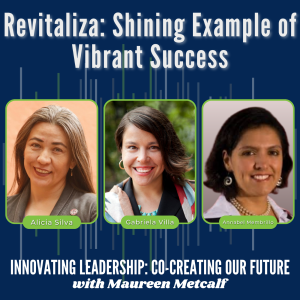
Wednesday Mar 15, 2023
Wednesday Mar 15, 2023
Guests: Alilcia Silva, Gabriela Villa & Annabel Membrillo
Revitaliza is a woman owned green building company in Mexico committed to improving the world and the lives of their employees and clients based on their services and the company culture they have created. Also embedded in their culture is empowerment of women. Revitaliza and its owner are are truly "positive deviants" and a shining example of a company making a positive impact and making money. During the interview they talk about how they are shifting agreements within their company and the impact this has on their employees, their process efficiency and their external stakeholders. • How do you use the focus on agreements to build your culture and drive successful performance? • What are some of the agreements you have put into place? • Talk about how you are shifting agreements within the company and the impact this has on their employees, their process efficiency and their external stakeholders.
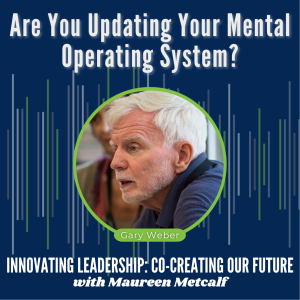
Wednesday Mar 15, 2023
Wednesday Mar 15, 2023
Guest: Gary Weber
Gary and Maureen talk about the leadership “operating systems” we are working with based on our brain programming and our level of conscious awareness of this operating system. When we increase our awareness, we can reprogram this operating system to move beyond the survival and ego based system to a more deliberate, service based, long term success oriented system. In our current time with increasing complexity and challenge, we as leaders need to commit to updating this operating system to ensure future generations thrive. This is something that must be done by each leader – we can’t look to those in political roles or senior roles to take care of it – all of us have a responsibility. 1) Over 99% of our thinking and actions take place automatically – can you talk more about that? 2) Pain is weighted 3-5 x higher – how does that impact our lives? How does that impact us as leaders? 3) The way our brains are working is not okay (we need to upgrade our operating system) - how?
